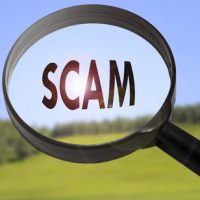Beware of Trademark Scams (Know the Guidance from the USPTO)

Unfortunately, in our increasingly digital world, the number of scams are not only rising, but they are also becoming more complex. Trademark applications are no exceptions. The United States Patent & Trademark Office (USPTO) has put out official guidance to help people identify and avoid scams and other types of fraud schemes. Here, our Florida brand protection attorney provides an overview of the risks of trademark scams, including the guidance from the USPTO.
You Need to Know About the Common Trademark Scams
Trademark scams are complicated. There are a number of different illicit (often highly illegal) tactics that fraudsters use to take advantage of people. Notably, scammers often prey on trademark applicants by posing as official entities or offering fraudulent services. Common scams include:
- Materially Misleading Solicitations: Applicants may receive unsolicited communications that mimic official correspondence. These solicitations often request payment for services like trademark monitoring or inclusion in a registry—which are unnecessary or fake.
- Spoofed Communications: Some scammers use “spoofing” techniques to make their phone calls or emails appear as though they are coming from the USPTO. They might claim there’s an urgent issue with your application and pressure you into making an immediate payment.
- Fraudulent Filing: Certain entities advertise low-cost trademark filing services but may not employ qualified attorneys. If you need professional support, you should work with a licensed trademark law attorney.
Simple Strategies that You Can Use to Avoid Becoming a Victim of a Trademark Scam
- Verify All Communications With the USPTO
Trademark owners should always cross-reference any unsolicited communication with official USPTO contact information. The USPTO will never ask for personal or payment details. Fees for trademark applications are listed by the USPTO.
- Be Cautious of Unsolicited Offers
You should treat unexpected offers for trademark-related services with skepticism—especially those that demand immediate action or payment. As a general rule, you need to verify that you are working with an experienced reliable professional. It is best to hire a lawyer who has a proven record of high-level service.
- Take Immediate Action to Report and Address Fraud
If you suspect that you have encountered a trademark scam, you should report the incident—especially if you were defrauded. You can notify the USPTO by emailing TMScams@uspto.gov. It is a best practice to include all relevant information and any supporting documents. From there, you should Consult with an experienced intellectual property attorney to assess any potential impact on your trademark application or registration.
Consult With Our Florida Brand Protection Lawyer Today
At Perkins Law — Brand Protection, our Florida brand protection attorney is a knowledgeable, experienced advocate for clients. Trademark scams are a big problem. We can help you navigate the process in the smoothest possible manner. If you have any specific questions or concerns about the common trademark scams, please do not hesitate to contact us today for a fully confidential consultation. From our Boca Raton office, we represent clients throughout Southeastern Florida and nationwide.
Source:
uspto.gov/trademarks/protect/recognizing-common-scams
